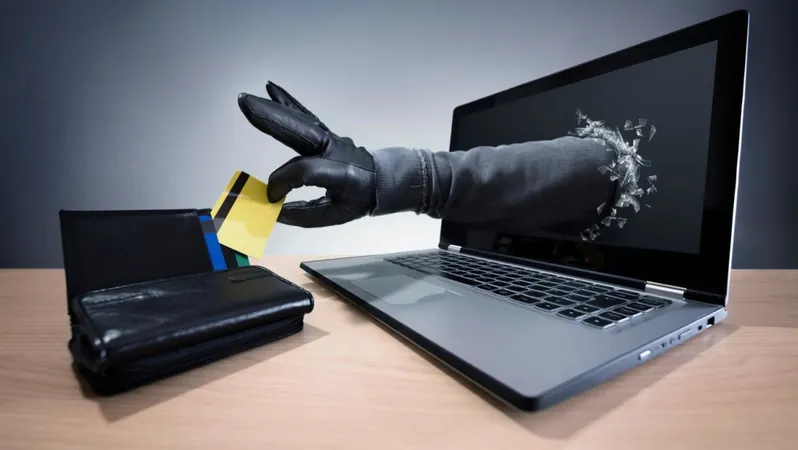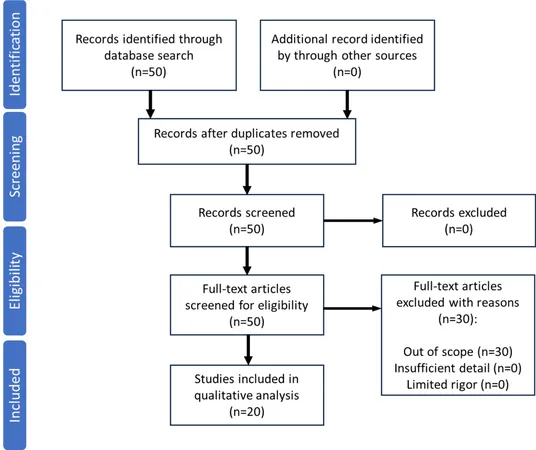
Singapore Faces Alarming Rise in Identity Fraud: The Deepfake Dilemma Unveiled
2024-11-21
Author: Mei
SINGAPORE: A Recent Study Reveals Shocking Statistics on Identity Fraud
In a startling revelation, Singapore recorded the most significant increase in identity fraud within the Asia-Pacific region, soaring by an astounding 207% from the previous year, according to the latest Identity Fraud Report by verification and monitoring platform, Sumsub. This surge starkly contrasts to the region's overall rise of 121%, with Thailand and Indonesia trailing closely behind at increases of 206% and 201%, respectively.
The report highlights a troubling global trend, pinpointing specific types of identity fraud that have gained prominence. Key concerns include the use of counterfeit documents, fraudulent "chargebacks" where customers falsely dispute transactions for refunds, patterns of organized fraud via multiple accounts, account takeovers, and increasingly sophisticated deepfakes.
The Global Deepfake Crisis: A Growing Trend
Sumsub’s findings indicate a dramatic four-fold increase in deepfake fraud attempts worldwide, which now comprise about 7% of all identity fraud incidents. Deepfakes—crafted digital images, videos, or audio that manipulate the likeness of individuals—are becoming a pervasive threat. In the Asia-Pacific region, Singapore, alongside Cambodia, witnessed a shocking 240% increase in deepfake fraud, placing it just behind South Korea, which experienced a staggering 735% spike.
With apprehension surrounding the implications of deepfakes on electoral integrity soaring, 85% of survey respondents expressed serious concerns regarding the impact of these technologies on future elections. The urgency is amplified by Singapore's impending general elections, slated to occur by November of next year.
Experts Warn of Potentially Catastrophic Impacts
Experts like Associate Professor Natalie Pang from the National University of Singapore have sounded the alarm bells, labeling the findings as "worrying." She emphasizes the need for stringent cybersecurity measures, noting, "If left unaddressed, the losses and damages caused by these fraud attempts can be potentially devastating."
Singapore’s high volume of digital transactions makes it an attractive target for fraudsters. The city-state’s robust digital economy, coupled with a notable level of trust from its citizens in online transactions, compounds this vulnerability. “The more trust there is, the less skepticism there tends to be towards fraudulent schemes,” Associate Professor Pang stated.
Penny Chai, Sumsub's Vice President of Business Development for the Asia-Pacific region, echoed these sentiments, pointing out that Singapore's rapid move towards a cashless society, featuring a plethora of digital wallets and contactless payment solutions, has opened new fronts for fraud. While these technologies offer convenience, they also expose users to novel types of vulnerabilities.
How to Stay Safe in the Digital Age
Recognizing the escalating threats, experts urge individuals to adopt proactive cybersecurity practices. Empowering oneself with knowledge about common fraud tactics is essential. Measures such as enabling two-factor authentication, regularly updating passwords, and understanding how to detect deepfakes can significantly bolster personal security.
Associate Professor Hannah Yee-Fen Lim from Nanyang Technological University warns that even the most informed individuals can still fall victim to sophisticated social engineering scams. Many fraudsters exploit emotional triggers, leveraging scenarios that evoke love or desperation, such as romance or inheritance scams, which cloud judgment and lead victims into traps.
To effectively combat deepfake scams, individuals are advised to maintain a healthy skepticism toward suspicious online offers and phone calls labelled as "urgent." Simple yet effective tactics, like asking personal questions that only genuine contacts would know, can help reveal fraudsters.
As the digital landscape continues to evolve, the pressing question remains: How can Singapore safeguard its citizens from the rising tide of identity fraud and deepfake technologies?


 Brasil (PT)
Brasil (PT)
 Canada (EN)
Canada (EN)
 Chile (ES)
Chile (ES)
 España (ES)
España (ES)
 France (FR)
France (FR)
 Hong Kong (EN)
Hong Kong (EN)
 Italia (IT)
Italia (IT)
 日本 (JA)
日本 (JA)
 Magyarország (HU)
Magyarország (HU)
 Norge (NO)
Norge (NO)
 Polska (PL)
Polska (PL)
 Schweiz (DE)
Schweiz (DE)
 Singapore (EN)
Singapore (EN)
 Sverige (SV)
Sverige (SV)
 Suomi (FI)
Suomi (FI)
 Türkiye (TR)
Türkiye (TR)